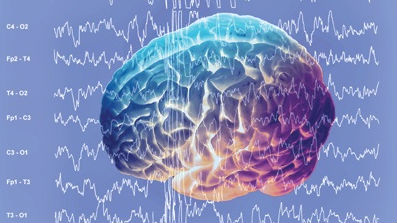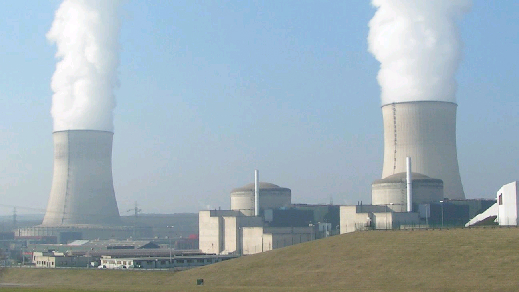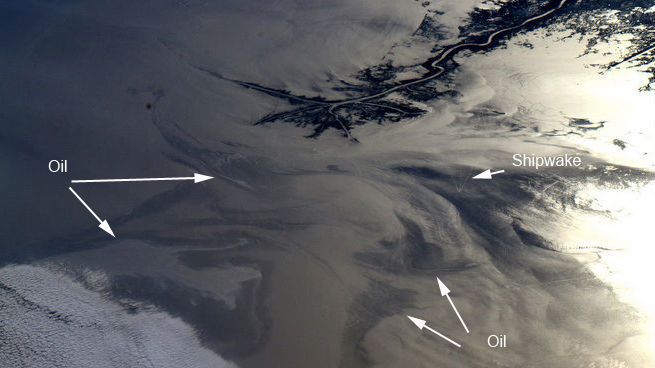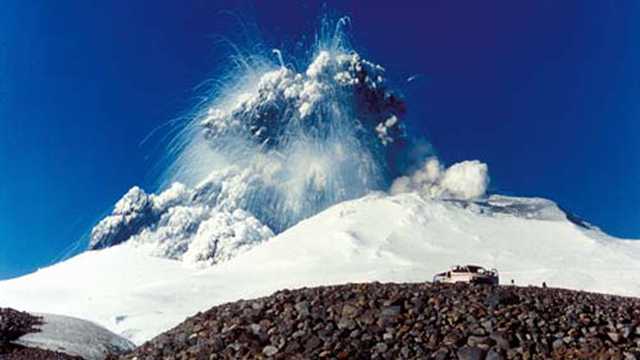The Large Hadron Collider, the world’s most powerful atom smasher, may be only months away from finding a new elementary particle—a sign of a new force in nature—recent studies suggest.
All Articles
Initial research indicating increasing temperature variation on Earth correlates with data showing the risk of species extinction is decreasing. But there are caveats, say the researchers.
A vast expanse of freshwater in the midst of the Arctic Ocean is set to wreak unpredictable changes on the climate in Europe and North America, new scientific analysis has shown.
More than a wild dream, Russia, the U.S. and other nations are to discuss cooperation on building a nuclear-powered spacecraft, according to the Russian space agency Roscosmos.
Given current technology, the vast distances between objects in outer space prohibit interstellar travel—missions to and from foreign stars—but a fusion powered spaceship could change that.
As more meteorites have been discovered in recent years, interest in them has flourished and an illegal sales market has boomed—much to the dismay of scientists who want to study them.
Workers near the Fukushima Daiichi nuclear complex are sealing a leak releasing radioactive seawater into the ocean, though scientists say the radiation will dissipate in the Pacific.
California-based SpaceX has announced plans for a new rocket that it says will be the most powerful in the world—both government and private space ventures will benefit from the technology.
Why do Shakespeare’s plays have such a dramatic impact on readers and audiences? Philip Davis shows how Shakespeare’s use of language creates heightened brain activity, or what he calls “a theater of the brain.”
Today marked the publication of the new book Infinite Reality: Avatars, Eternal Life, New Worlds, and the Dawn of the Virtual Revolution by Jeremy Bailenson and Jim Blasocovich. Infinite Reality gets inside all of the […]
Despite its significant downsides, nuclear energy is still absolutely vital for America’s (and the planet’s) future. This will become all the more true when cleaner fourth generation reactors become available.
Despite its significant downsides, nuclear energy is still absolutely vital for America’s (and the world’s) future. And this will become all the more true when cleaner, more powerful fourth generation […]
Did you know that within six hours the world’s deserts receive more energy than humankind consumes within a year? How awesome would it be to be able to tap into […]
Peter Diamandis has suggested we need to practice “planetary redundancy” and back up crucial information “off the planet.” What achievements of mankind deserve a place on this digital Noah’s Ark?
While natural disasters such as floods and tornadoes have captured our attention this summer, the scale of destruction is very slight compared to the worst man-made disasters.
The Rev. Martin Luther King, Jr. was shot in Memphis forty-three years ago yesterday. Around the country, labor unions and civil rights held commemorative rallies protesting efforts in Wisconsin, Ohio, […]
Blogging destroys the future-oriented process of writing nonfiction and replaces it with a sense of constant presentness—everything you write is provisional because the facts, or your mind, could change.
The abolition of the sex trades will only happen when countries eliminate (as opposed to relocate) demand for sex workers.
The first time I came across this new phenomenon was in my interview with Jeff Evans, one of the co-founders of MindSnacks back in August 2010. When I asked him […]
Lebanon, a country plagued by slow Internet, was a popular choice for an International Emmy for “Digital Program: Fiction” at Cannes for its drama series Shankaboot.
Nicole Ferraro says Facebook is somewhat upfront about how many people actually use its site but Twitter claims it has 175 million registered users yet fails to say how many are active.
A Swiss court says Google must guarantee all faces and license plates photographed as part of its Street View maps are unrecognizable, even though Google says it’ll cost too much.
Moore’s Law explains why the price of everything electronic keeps going down. Richard Bennett explains some exceptions. Don’t expect bandwith prices to halve every 18 months.
A new case study from Harvard Business School looks at how National Geographic dealt with the many challenges of changing its business model from paper to digital.
Consumer-oriented cloud applications make it really easy for employees to share sensitive corporate documents, maybe too easy, warns Maria Korolov.
Digital technologies and the Internet are affecting every aspect of film production, distribution, marketing, and consumption and have spawned the online film festival.
For the first time, Australians can turn off behavioural advertising used on the websites of most of the country’s major online advertisers.
Yesterday I mentioned the Auckland Volcanic Field – the cluster of volcanoes underneath New Zealand’s largest city. Although the Auckland Volcanic Field is a region to monitor for activity, it […]
Before Copernicus, it was widely believed that everything – including the Sun – revolved around the Earth. In the same way, it might be quaint one day to believe that everything once revolved around the PC rather than the mobile device.
Chinese artist Ai Weiwei’s recent abduction is a testament to how powerfully the Chinese government fears the combination of art and communication technology.













